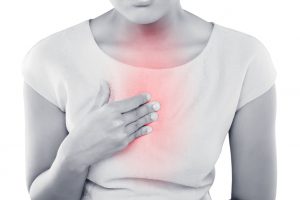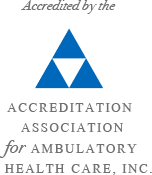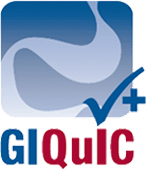When is an Esophagus Dilation Performed?
 If everything’s working, as it should, you probably eat and drink without giving the process much thought. In some cases, however, your esophagus can become narrowed, which can cause pain and discomfort.
If everything’s working, as it should, you probably eat and drink without giving the process much thought. In some cases, however, your esophagus can become narrowed, which can cause pain and discomfort.
In this blog, the doctors at Gramercy Park Digestive Disease Center (GPDDC) will explain this common problem and the procedure that can help correct it.
What is esophageal dilation?
Esophageal dilation is a procedure performed by your doctor to dilate (or stretch) your esophagus. This tube carries food, liquid, and saliva from your mouth into your stomach.
The procedure is also sometimes called an esophageal stricture treatment.
When is it performed?
Your esophagus can become irritated and inflamed for a variety of reasons, which can prevent food and drink from passing easily to your stomach. As a result, you may feel as though food is “stuck” in your chest or throat, which causes pain and discomfort.
You may also have trouble swallowing that becomes worse over time, to the point that foods or liquids are regurgitated. As the issue persists, you may find yourself avoiding foods that are harder to swallow or taking tiny bites of food. You may also experience weight loss or dehydration.
The most common reason for a narrowing of the esophagus is Gastroesophageal reflux disease (GERD). This condition occurs when a band of muscle located at the end of your esophagus doesn’t close properly. The contents of your stomach can leak back into your esophagus, causing irritation and, over time, damage.
Your esophagus can also become narrowed for one of the following less common reasons:
- Excess tissue that forms webs or rings
- A disorder that affects how the esophagus moves
- Scarring after radiation treatment
- Cancer of the esophagus
What is involved with esophagus dilation?
Your doctor can perform this procedure in several different ways, including by inserting a series of flexible tubes into your esophagus to break the structure that’s causing the blockage. He or she may also insert and inflate a special balloon to achieve the same result.
In most cases, you’ll receive a topical anesthetic spray inside your throat before the procedure, which takes only a few minutes. It’s usually immediately effective, and you’ll be able to eat and drink normally a short time afterward.
Sometimes the dilation procedure will be performed in conjunction with an upper endoscopy. This allows your doctor to use a thin, flexible tube with a light and camera attached in order to get a closer view of your esophagus on a monitor. He or she may also take X-rays of your esophagus.
If you’re having an upper endoscopy, you’ll usually receive sedation, so you’ll need someone to drive you home.
Esophagus dilation is usually successful after just one procedure, and the most common side effect is a mild sore throat.
Where should I have an esophagus dilation performed in the NYC area?
Gramercy Park Digestive Disease Center (GPDDC) is a state-certified Ambulatory Surgery Center, and our gastroenterologists serve patients throughout the New York City metro area and beyond in our state-of-the-art facility.
Our doctors are specialists who are experienced and skilled in using the latest endoscopic procedures to treat a variety of gastrointestinal issues, including acid reflux and narrowing of the esophagus. We combine the highest level of technical skill with a compassionate approach and a commitment to providing effective care.
If you’re having trouble swallowing or experiencing other symptoms of esophageal narrowing, make an appointment today with GPDDC. We’ll conduct a thorough examination as well as any necessary testing to correctly diagnose the problem and recommend the most effective treatment


